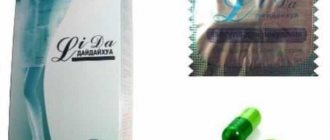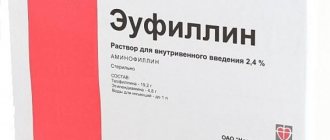What is the drug?
"Rimonabant" for weight loss is a medicinal drug in the form of white capsules, each of which contains twenty milligrams of the active substance - rimonabant. It was developed for the treatment of obesity; it is an antagonist of cannabinoid receptors, which ensure the passage of substance ions into cells. By acting on the central nervous system, this drug blocks these receptors, so a person’s appetite decreases.
"Rimonabant" is intended for the treatment of obesity of varying degrees only in complex therapy together with diet and physical activity. It is also prescribed to patients with hyperlipidemia, type 2 diabetes mellitus, and who have problems with excess weight.
This product is approved for use in many European countries, Mexico and Argentina; in Russia and the CIS countries, permission for its use has been revoked.
The manufacturer has conducted many clinical trials. Rimonabant has been used as a treatment for obesity and nicotine addiction. The subjects received the drug at a dosage of twenty milligrams per day. Over the course of a year, the patients' weight decreased by six and a half kilograms. The drug also turned out to be effective in treating tobacco addiction.
Based on the test results, it became clear that the drug has a positive effect on the body’s systems and also helps to improve the well-being of people who have diabetes. To date, the drug still needs additional research regarding the condition of people after its withdrawal. In fact, “Rimonabant” or “Acomplia” needs improvement, since suicidal thoughts were replaced during its use in 70% of the subjects, two people committed suicide. Also, some patients developed multiple sclerosis and aggression.
Nothing can be said about the price of Rimonabant, since the drug was discontinued in the CIS countries back in 2008. The closest drug with a similar mechanism of action is Sibutramine. Its cost is about two thousand rubles.
Rimonabant
Rimonabant was the first selective CB1 receptor blocker approved for use anywhere in the world. In Europe, it was prescribed for use in combination with diet and exercise in patients with a body mass index (BMI) greater than 30 kg/m², or in patients with a BMI greater than 27 kg/m² with associated risk factors such as type 2 diabetes mellitus or dyslipidemia. It was available in the UK from July 2006. In 2008, the drug was available in 56 countries. On 21 June 2006, the European Commission approved the sale of rimonabant in the 25 countries of the European Union as a prescription medicine. Pharmaceutical company Sanofi-Aventis has announced the launch of rimonabant in the United Kingdom. Sales began in July 2006. Sanofi-Aventis also predicted that the drug would be available shortly thereafter in Denmark, Ireland, Germany, Finland and Norway. In 2007, sales of the drug were expected to begin in Belgium and Sweden. According to official medical recommendations, ordinary obesity will not be a sufficient factor to obtain a prescription for the drug in Sweden; in addition, additional requirements are needed for abnormal blood lipid levels. Rimonabant has been submitted for approval to the United States Food and Drug Administration (FDA). However, in 2007, the FDA's Endocrine and Metabolic Drugs Advisory Committee (EMDAC) concluded that French manufacturer Sanofi-Aventis had failed to demonstrate the safety of rimonabant and voted against recommending approval of the drug for the treatment of obesity. Subsequently, Sanofi-Aventis announced it was suspending its New Drug Application (NDA) for rimonabant and said it would resubmit the application in the future. The EU's approval was not unconditional. Additionally, Acomplia was not approved in the EU for non-obesity conditions such as smoking cessation, although off-label use of the drug was still possible. Approval was given for the treatment of obese patients (BMI greater than or equal to 30) or overweight patients (BMI greater than 27) with underlying risk factors such as type 2 diabetes or dyslipidemia, in combination with diet and exercise. In 2007, the warning labels on the drug label were changed. The drug is now contraindicated in patients suffering from depression following guidance from the European Medicines Agency. In October 2008, the European Medicines Agency recommended suspending the marketing of Acomplia after the Committee for Medicinal Products for Human Use (CHMP) determined that the risks of Acomplia outweighed its benefits due to the risk of serious mental disorders and even suicide. Sanofi-Aventis then suspended sales of the drug and its approval was withdrawn by the European Commission on January 16, 2009. The production and sale of the drug was banned in India.
How does the drug work?
"Rimonabant" ("Acomplia"), which has mixed reviews, has an effect on the brain, in particular on cannabinoid receptors, which are related to fat deposits around internal organs (visceral fat). They influence a person’s appetite and shape his eating behavior.
These receptors are located in different parts of the brain, both the brain and the spinal cord, they are activated when fatty and high-calorie foods enter the body, increasing a person’s appetite. Receptors also reduce the brain's responses to the feeling of satiety, so a person does not feel full
In case of obesity, a person experiences increased appetite and the process of lipogenesis develops. When taking the drug, appetite decreases, the feeling of fullness occurs much faster, as the functionality of the receptors slows down.
According to doctors, Rimonabant is not able to completely establish metabolic processes in the body. When taking the drug for one year along with strength training and diet, patients were able to lose only 5% of their body weight. But their risk of developing mental disorders has increased. Doctors say that the process of losing weight is quite slow, so if you follow a healthy lifestyle, you can lose weight without it, especially since it has many side effects.
Weight loss is observed during the first nine months of therapy, while the effectiveness of the drug is maintained for two years.
The drug is excreted unchanged in 86% by the intestines and 3% by the kidneys.
The weight loss effect that the manufacturer promises
The action of this drug is aimed at the brain. A couple of decades ago, it was discovered that cannabinoid receptors are directly linked to fat deposits around the internal organs in the abdominal cavity. They influence appetite and the formation of eating behavior. Visceral fat is considered the most dangerous because it is extremely difficult to break down and can lead to compression and displacement of internal organs.
Read also: Apple diet options for losing 10 kg weight
Cannabinoid receptors are located in various parts of the brain and spinal cord. When high-calorie and very fatty foods enter the body, they are activated. These receptors help increase appetite. Incoming calories and fats do not have time to be processed and spent, and accordingly, they are stored in reserve.
In addition, the receptors reduce the “attention” of the parts of the brain responsible for the feeling of satiety. That is, a person eats and does not understand that he has been full for a long time. Obese people have a pathologically large appetite, in parallel with which the process of lipogenesis occurs.
As a result of using Rimonabant, receptor activity decreases, appetite stops growing, and satiation with food occurs much faster.
However, after a year of taking the drug and following a low-calorie diet and physical activity, patients lost no more than 5% of their body weight. At the same time, it increases the risk of psychiatric disorders in humans. In fact, obesity occurs as a result of disruptions in the metabolism and functioning of other body systems. Therefore, with the help of the drug it is impossible to establish it completely.
Limitations in use
Restrictions on the use of Rimonabant are:
- High susceptibility to the components of the drug,
- Severe pathologies of the liver and kidneys, heart and blood vessels, as well as the gastrointestinal tract,
- Depression and stress or the period of their treatment,
- Concomitant use with antidepressants,
- Carrying and breastfeeding a child,
- Children's and old age,
- Having lactose intolerance,
- Anorexia or bulimia,
- cerebrovascular disorder,
- Changes in blood pressure that cannot be treated
- Alcoholism and drug addiction,
- Urinary disorder
- Epilepsy,
- The presence of malignant neoplasms.
It is not recommended to use the drug simultaneously with medications such as Ketoconazole, Ritonavir, Feniton, Carbamazepine, St. John's wort preparations, Lorazepam, as well as inhibitors of the CYP3A isoenzyme.
Possible negative reactions
According to the instructions, Rimonabant can provoke the development of negative reactions. The most common side effects are: depression and anxiety, dizziness and nausea, emotional disturbances and headaches, aggressive behavior and suicidal tendencies, mental disorders.
The drug can also cause the following symptoms:
- Abdominal pain
- Amnesia,
- sleep disorder,
- Panic attacks,
- Sensory impairment
- Dysphoria,
- Urticaria accompanied by itching
- hiccups,
- Cramps and muscle spasms,
- Tendinitis,
- Frequent falls
- Viral infections, sinusitis,
- Hallucinations and paranoia.
Since there are many adverse reactions, doctors do not recommend using this drug for the treatment of obesity. In this case, a diet combined with strength training and a healthy lifestyle will bring greater results.
According to the results of studies, when taking the drug, patients experienced the development of depression, their mood changed, and suicidal thoughts appeared. Therefore, it is not recommended to use the medicine for those who have a history of episodes of depression. Such patients and their relatives should be warned about the development of adverse reactions. If depression occurs during therapy, treatment is stopped. Also, you cannot increase the dosage of the drug on your own, as the risk of developing negative reactions increases many times.
In case of overdose, symptomatic treatment is carried out as part of emergency care. The victim’s stomach is washed and sorbents are given if less than an hour has passed after taking the drug. Severe consequences are treated in a hospital or intensive care unit. An antidote for intoxication has not been developed. Most often, with an overdose, tachycardia and an increase in blood pressure are observed.
Analogs
Previously, in Russia, Zimulti, which contained the same active substance, was used as an analogue of Rimonabant. But in 2009, it was also banned in the CIS countries, like all drugs that contain rimonabant. Also in some other European countries such drugs have been discontinued.
This product is approved for use in many European countries, Mexico and Argentina under such trademarks as Acomplia, Rimoslim, Slimona, etc. In Russia, the closest drug with a similar mechanism of action is Sibutramine; it costs about two thousand rubles.
Interesting research about the drug
Rimonabant is approved and commercially available in Europe and Latin America, particularly Mexico and Argentina. To date, 7 clinical studies of the effects of this drug have been conducted in different centers. It has been used to treat patients suffering from obesity and tobacco addiction. During the study, people received dosages of Rimonabant ranging from 5 to 20 mg throughout the day.
During the year of the experiment, patients on average lost weight by 6.6 kg, waist circumference decreased by 8.5 cm, and the level of triglycerides and low-density lipoproteins in the blood plasma definitely decreased.
Thanks to Rimonabant, patients were able to get rid of tobacco addiction and quit smoking without gaining weight. As a result of the synthesis of adiponectin, the drug reduced the insulin dependence index by 41% and normalized carbohydrate metabolism in patients with high glycemic levels before meals.
Table 1: Changes in weight and waist circumference in the rimonabant and placebo groups
Read also: Cheap vinegar body wrap for weight loss: main points of the procedure and results
| End point | Rimonabant 20 mg (n=339) | Placebo (n=348) | R |
| Weight, kg) | -5,3 | -1,4 | |
| Waist circumference (cm) | -5,2 | -1,9 | Thus, studies show that Rimonabant has a positive effect on certain body systems and improves the well-being of patients with diabetes. But it still needs longer and high-quality studies with a long period of observation of patients after discontinuation of the drug. Rimonabant currently has serious side effects, and now it needs to be improved. Subsequent studies revealed the occurrence of suicidal tendencies in more than 70% of people who took it. And two people even committed suicide. In addition, other patients developed apoplexy attacks, multiple sclerosis began to develop, and aggressive behavior was observed in the family. |
Reviews
Due to the presence of a large number of contraindications and adverse reactions, Rimonabant has mostly negative reviews. The majority of people who had previously undergone treatment with this drug experienced the development of depression, which was accompanied by a depressed state, panic attacks, nervousness and frequent aggression towards people around them.
Doctors do not recommend this drug and its analogues, since its effectiveness is quite low compared to the huge number of side effects.
Nutritionists and endocrinologists argue that obesity can be treated in other ways that will bring more effective results. In addition, one should not forget about sports, proper and healthy nutrition, and giving up bad habits.











